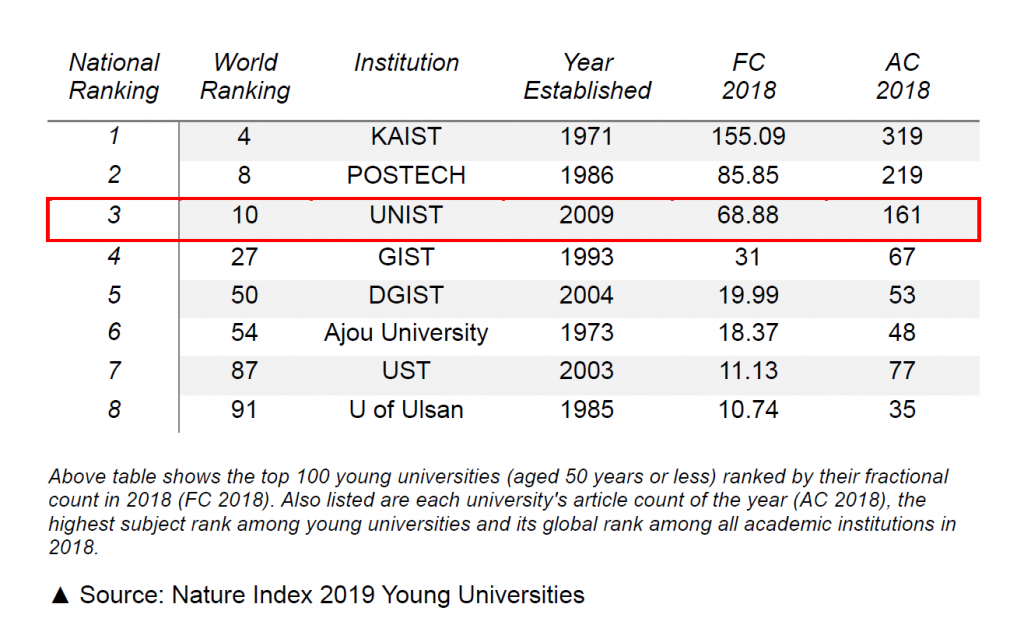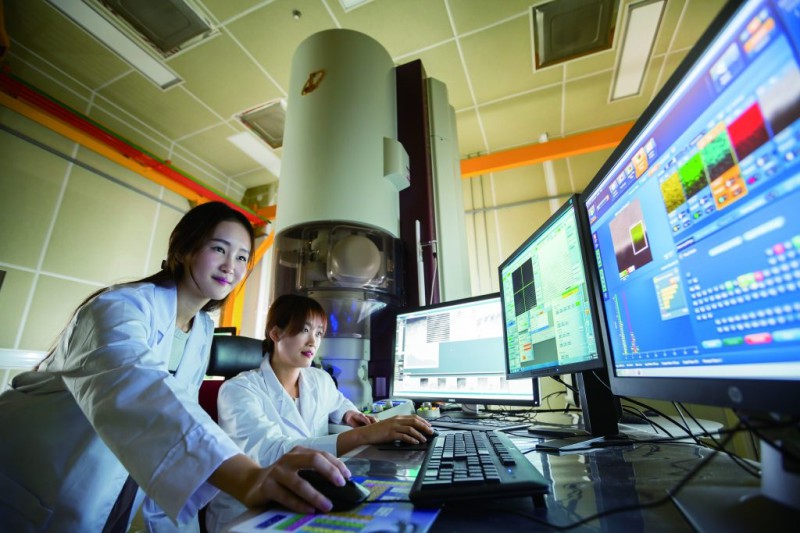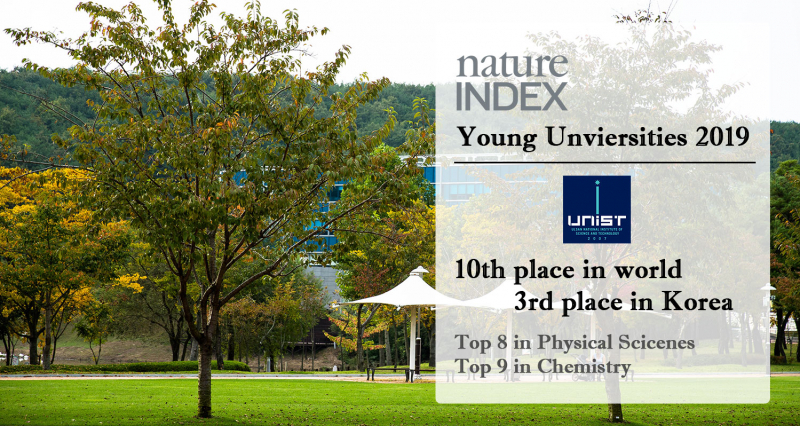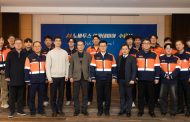UNIST has distinguished itself with inclusion in the TOP 100 Nature Index Young University Ranking in 2019. [Click HERE to access the Nature Index 2019 Young Universities.]
In this inaugural ranking, UNIST ranked No.10 among the world’s elite young universities that have excelled in producing high-quality research. The ranking indicated that UNIST has excelled especially in the fields of Physical Sciences and Chemistry. Besides, UNIST was placed in 8th and 9th in both fields, respectively.
The Nature Index Young University Ranking lists the world’s leading young universities (aged 50 years or less) that have excelled in groundbreaking scientific research in the natural sciences, such as the life sciences, physical sciences, chemistry, and Earth and environmental sciences.
The ranking, released on the 23rd of October, is based on the Nature Index metrics of article count (AC) and fractional count (FC) that looked at the contributions of authors from 100 young universities in 2018 to 82 journals in the natural sciences. AC indicates the total number of articles published by an institution’s affiliated researchers, while FC measures the share of each institution’s contribution to those articles.

As shown above, UNIST obtained an FC score of 68.88 and an AC score of 161 in the Nature Index 2019 Young Universities. This puts UNIST No. 3 amongst South Korea’s research-intensive universities.
“Since the establishment, UNIST has been striving for research excellence through a selection and concentration strategy,” says Vice President Jae Sung Lee of UNIST. “Much of UNIST’s success is largely due to the result of pursuing world-class research via research collaboration and convergence research.”

According to the inaugural Nature Index Young Universities ranking, UNIST has particular research strengths in the next-generation energy, including perovskite solar cells.
Out of the top 100 research-intensive young universities, the Nature Index selected 9 notable universities, including UNIST, and published and issued a special story about them. [Click HERE to access the full article.]
This special story emphasizes that UNIST has particular research strengths in renewable energy, as exemplified by Professor Sang-Il Seok’s perovskite solar cells. It also noted that UNIST mandated that all courses are to be taught in English to boost its international competitiveness.
Meanwhile, in the inaugural Nature Index Young Universities ranking, the University of Chinese Academy of Sciences (UCAS) was ranked No. 1, followed by Singapore’s Nanyang Technological University (NTU) and the Swiss Federal Institute of Technology Lausanne (EPFL). Among Korean universities, KAIST was 4th and POSTECH ranked 8th.







![[2026 Matriculation] UNIST Welcomes Class of 2030!](https://news.unist.ac.kr/wp-content/uploads/2026/02/사진-박종래-UNIST-총장이-2026년-입학식사를-전하고-있다-2-190x122.jpg)
![[2026 UNIST Commencement] UNIST Confers Degrees to 883 Graduates](https://news.unist.ac.kr/wp-content/uploads/2026/02/사진-2026학년도-UNIST-졸업생들이-학사모를-위로-던지며-졸업을-축하하고-있다-1-800x413-190x122.jpg)




